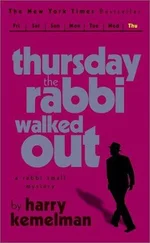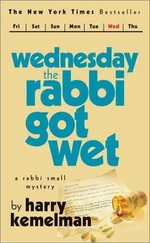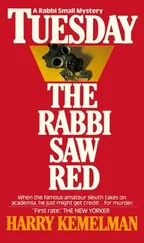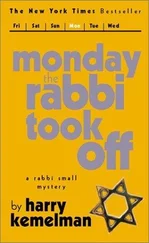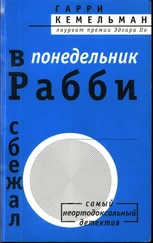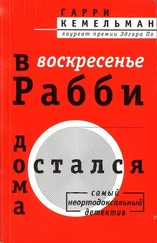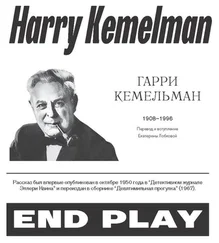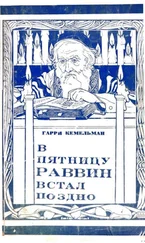THE NINE-MILE WALK
by
Harry Kemelman
I HAD MADE an ass of myself in a speech I had given at the Good Government Association dinner, and Nicky Welt had cornered me at breakfast at the Blue Moon, where we both ate occasionally, for the pleasure of rubbing it in. I had made the mistake of departing from my prepared speech to criticize a statement my predecessor in the office of district attorney had made to the press. I had drawn a number of inferences from his statement and had thus left myself open to a rebuttal which he had promptly made and which had the effect of making me appear intellectually dishonest. I was new to this political game, having but a few months before left the Law School faculty to become the Reform Party candidate for district attorney. I said as much in extenuation, but Nicholas Welt, who could never drop his pedagogical manner (he was Snowdon Professor of English Language and Literature), replied in much the same tone that he would dismiss a request from a sophomore for an extension on a term paper.
“That’s no excuse.”
Although he is only two or three years older than I, in his late forties, he always treats me like a schoolmaster hectoring a stupid pupil. And I, perhaps because he looks so much older with his white hair and lined, gnomelike face, suffer it.
“They were perfectly logical inferences,” I pleaded.
“My dear boy,” he purred, “although human intercourse is well — high impossible without inference, most inferences are usually wrong. The percentage of error is particularly high in the legal profession, where the intention is not to discover what the speaker wishes to convey, but rather what he wishes to conceal.”
I picked up my check and eased out from behind the table. “I suppose you are referring to cross-examination of witnesses in court. Well, there’s always an opposing counsel who will object if the inference is illogical.”
“Who said anything about logic?” he retorted. “An inference can be logical and still not be true.”
He followed me down the aisle to the cashier’s booth. I paid my check and waited impatiently while he searched in an old-fashioned change purse, fishing out coins one by one and placing them on the counter beside his check, only to discover that the total was insufficient. He slid them back into his purse and with a tiny sigh extracted a bill from another compartment of the purse and handed it to the cashier. “Give me any sentence of ten or twelve words,” he said, “and I’ll build you a logical chain of inferences that you never dreamed of when you framed the sentence.”
Other customers were coming in, and since the space in front of the cashier’s booth was small, I decided to wait outside until Nicky completed his transaction with the cashier. I remember being mildly amused at the idea that he probably thought I was still at his elbow and was going right ahead with his discourse.
When he joined me on the sidewalk I said, “A nine-mile walk is no joke, especially in the rain.”
“No, I shouldn’t think it would be,” he agreed absently. Then he stopped in his stride and looked at me sharply. “What the devil are you talking about?”
“It’s a sentence and it has eleven words,” I insisted. And I repeated the sentence, ticking off the words on my fingers.
“What about it?”
“You said that given a sentence of ten or twelve words —”
“Oh, yes.” He looked at me suspiciously. “Where did you get it?”
“It just popped into my head. Come on, now, build your inferences.”
“You’re serious about this?” he asked, his little blue eyes glittering with amusement. “You really want me to?”
It was just like him to issue a challenge and then to appear amused when I accepted it. And it made me angry. “Put up or shut up,” I said.
“All right,” he said mildly. “No need to be huffy. I’ll play. Hm-m, let me see, how did the sentence go? ‘A nine-mile walk is no joke, especially in the rain.’ Not much to go on there.”
“It’s more than ten words,” I rejoined.
“Very well.” His voice became crisp as he mentally squared off to the problem. “First inference: The speaker is aggrieved.”
“I’ll grant that,” I said, “although it hardly seems to be an inference. It’s really implicit in the statement.”
He nodded impatiently. “Next inference: The rain was unforeseen, otherwise he would have said, ‘A nine-mile walk in the rain is no joke,’ instead of using the ‘especially’ phrase as an afterthought.”
“I’ll allow that,” I said, “although it’s pretty obvious.”
“First inferences should be obvious,” said Nicky tartly.
I let it go at that. He seemed to be floundering and I didn’t want to rub it in. “Next inference: The speaker is not an athlete or an outdoorsman.”
“You’ll have to explain that one,” I said.
“It’s the ‘especially’ phrase again,” he said. “The speaker does not say that a nine-mile walk in the rain is no joke, but merely the walk — just the distance, mind you — is no joke. Now, nine miles is not such a terribly long distance. You walk more than half that in eighteen holes of golf — and golf is an old man’s game,” he added slyly. I play golf.
“Well, that would be all right under ordinary circumstances,” I said, “but there are other possibilities. The speaker might be a soldier in the jungle, in which case nine miles would be a pretty good hike, rain or no rain.”
“Yes,” and Nicky was sarcastic, “and the speaker might be one-legged. For that matter, the speaker might be a graduate student writing a Ph. D. on humor and starting by listing all the things that are not funny. See here, I’ll have to make a couple of assumptions before I continue.”
“How do you mean?” I asked suspiciously.
“Remember, I’m taking this sentence in vacuo, as it were. I don’t know who said it or what the occasion was. Normally a sentence belongs in the framework of a situation.”
“I see. What assumptions do you want to make?”
“For one thing, I want to assume that the intention was not frivolous, that the speaker is referring to a walk that was actually taken, and that the purpose of the walk was not to win a bet or something of that sort.”
“That seems reasonable enough,” I said.
“And I also want to assume that the locale of the walk is here.”
“You mean here in Fairfield?”
“Not necessarily. I mean in this general section of the country.”
“Fair enough.”
“Then, if you grant those assumptions, you’ll have to accept my last inference that the speaker is no athlete or outdoorsman.”
“Well all right. Go on.”
“Then my next inference is that the walk was taken very late at night or very early in the morning — say, between midnight and five or six in the morning.”
“How do you figure that one?” I asked.
“Consider the distance — nine miles. We’re in a fairly well populated section. Take any road and you’ll find a community of some sort in less than nine miles. Hadley is five miles away, Hadley Falls is seven and a half, Goreton is eleven, but East Goreton is only eight, and you strike East Goreton before you come to Goreton. There is local train service along the Goreton road and bus service along the others. All the highways are pretty well traveled. Would anyone have to walk nine miles in a rain unless it were late at night when no buses or trains were running and when the few automobiles that were out would hesitate to pick up a stranger on the highway?”
“He might not have wanted to be seen,” I suggested.
Nicky smiled pityingly. “You think he would be less noticeable trudging along the highway than he would be riding in a public conveyance where everyone is usually absorbed in his newspaper?”
Читать дальше

